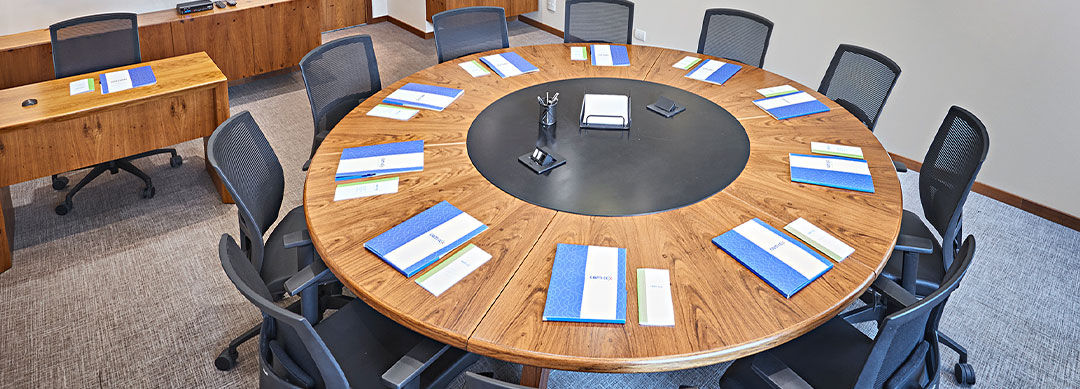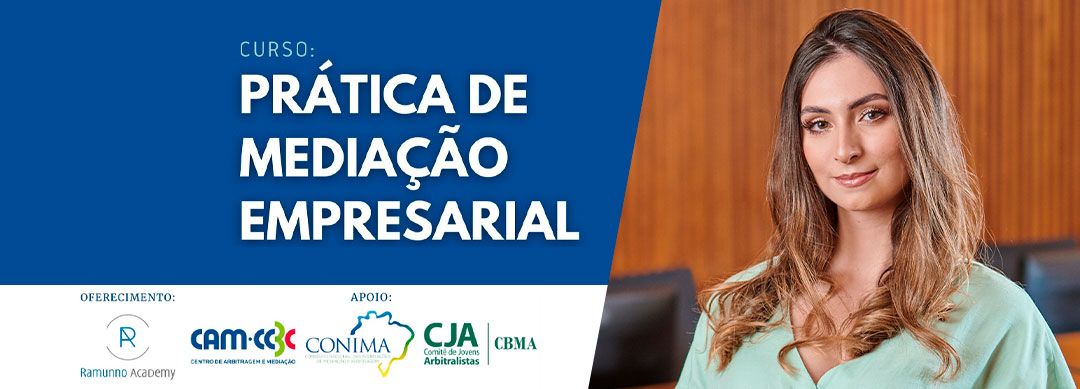Case managers’ study group promotes the discussion of cases received by CAM-CCBC and topics from the universe of arbitration
By Sérgio Siscaro
CAM-CCBC has eight specialized secretariats, which manage arbitration procedures in the areas of corporate law, infrastructure and construction, real estate market, intellectual property, energy, oil and gas, provision of goods and services, purchase and sale of goods, commercial disputes in general, and mediation. Aiming at sharing information that allows the exchange of successful experiences and improving the level of quality of services, the Institutional Development Advisor Ana Flávia Furtado, and the case manager, Maúra Guerra Polidoro, created in 2018 the internal Study Group, an initiative focused on the detailed analysis of cases.
The project is open to all CAM-CCBC employees. Since 2018, two rounds of meetings have been held, each with ten meetings lasting about an hour. In January, the third round has begun. Coordination is done by Furtado and Polidoro, but the suggestion of themes is up to the participants, who have the opportunity of sharing with the others the details of the cases that they have treated.
Learning Opportunity
Polidoro says that the need to share knowledge was the main motivator of the idea. “At the time, I was working in the General Secretariat, and there I had information from all the secretariats. There were several interesting cases that could be studied, and from which we could learn something”, she adds. She and Furtado proposed the creation of the Study Group, and since then, they are responsible for its coordination, setting dates, and making the first presentations of each round
The choice of themes is free, involving case studies in progress at the secretariats and other topics of interest, such as events, lawsuits related to arbitration, and public procedures administered by other national and international institutions, etc. “It is a great time to get together and further learn about the cases and provide a better technical development of the secretariats”, says Polidoro.
This deep immersion in the cases is emphasized by Furtado. “The Study Group meetings make it possible to delve deeper into cases, in a way that is not always possible in everyday life. The participation in these discussions improves the analytical capacity of the participants, puts them in contact with procedures managed by other CAM-CCBC’s secretariats, increases their level of technical knowledge and, additionally, works as a form of training for new employees”.
Variety of themes
In addition to discussing the cases that are administered by the Centre’s various secretariats, the Study Group also promotes the debate of issues relevant to the arbitration community in general. Some of the analyses included matters such as class arbitration, cooperation between arbitration tribunals, and the Judiciary and precautionary measures.
In the international field, one of the topics discussed was the case of the American rapper and businessman Jay-Z, who in 2018 initiated a procedure before the American Arbitration Association (AAA) and denounced, in the United States Judiciary, the lack of ethnic-racial representation in the list of arbitrators of the institution. “Two years ago, the debate on this case by the Study Group inspired us to take more effective actions in favour of diversity in CAM-CCBC”, says Furtado.
The Study Group is also responsible for encouraging its participants to produce content based on the discussions, thus promoting an important stimulus for academic improvement. Polidoro says that she even wrote an article for the Kluwer Law International Blog on a theme to be presented in the third round of group studies. Another future possibility is to include in the discussion agenda, additional alternative methods of dispute resolution, such as mediation, and dispute boards.
Virtual meetings
Polidoro tells that there are an average of ten or more participants in each meeting, although this may vary in the period, due to the level of activities of the Centre. The need to promote virtual meetings, as a result of the recommendations of social distancing dictated by the pandemic of the new coronavirus, ended up contributing to bring more people to the meetings.
“The last meetings held in the 2019-2020 round were made in a virtual way, as well as the first of the 2021 round, which took place in January. We have had a good level of participation, although before that we have also been registering a high attendance of the teams to the meetings. We managed to keep the activity in the midst of last year’s uncertainties, which is quite positive”, she ponders.
Furtado recalls that, due to the personal commitments of many of the participants, the online model had already been discussed before the pandemic. “Participation through virtual platforms has been quite expressive, which makes us think about maintaining this model after the pandemic, or, at least, creating a hybrid format”, she concludes.





